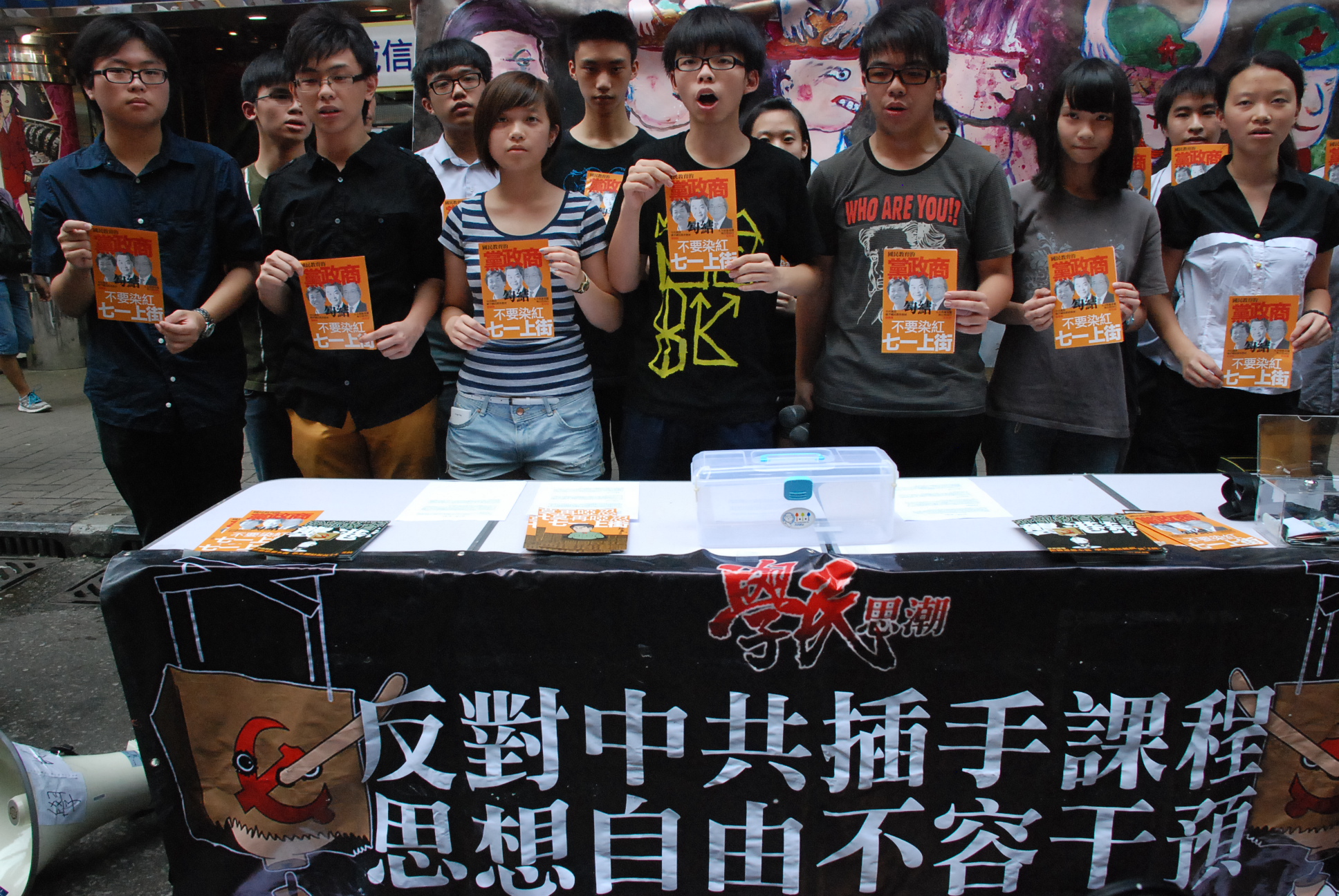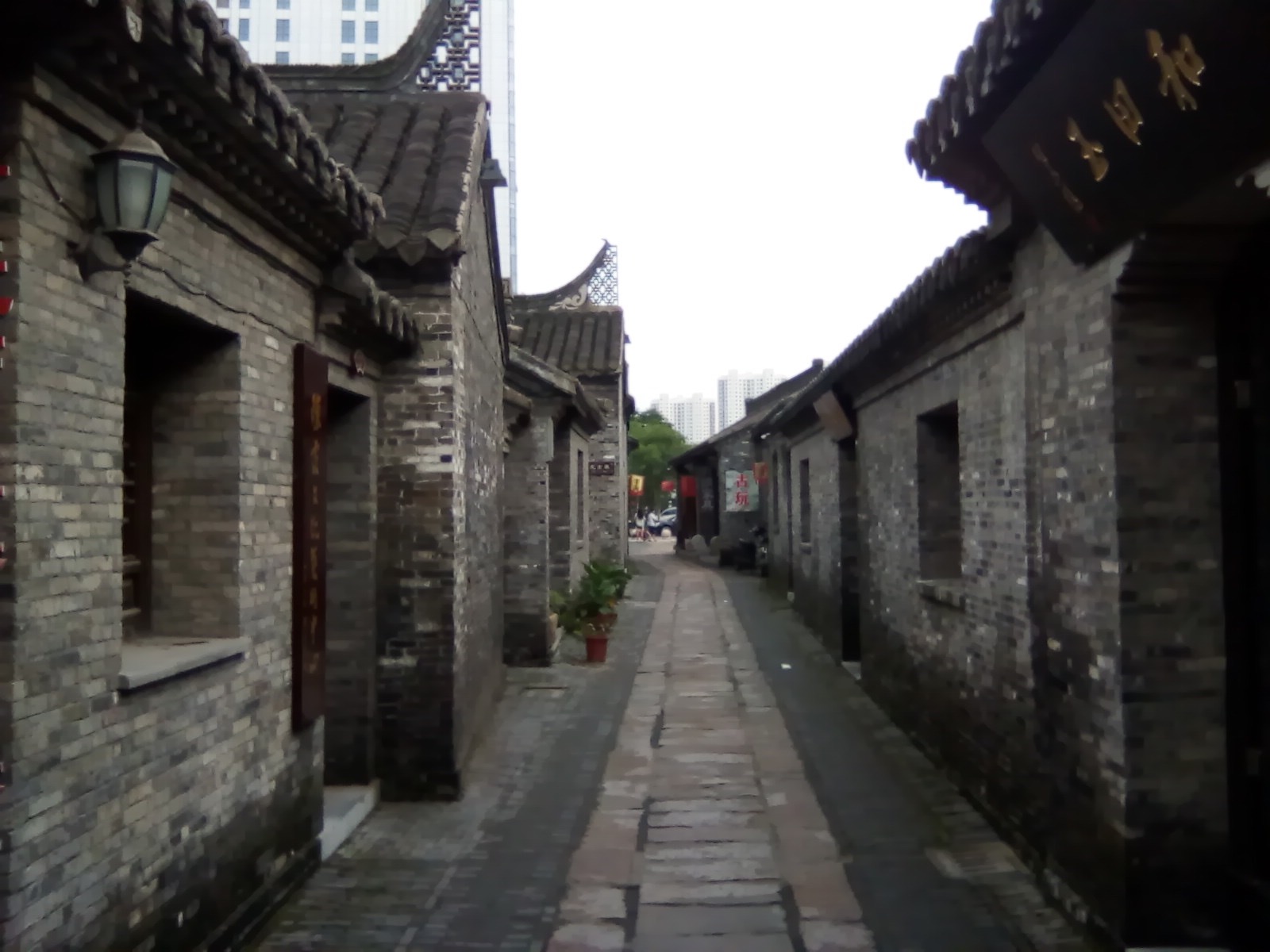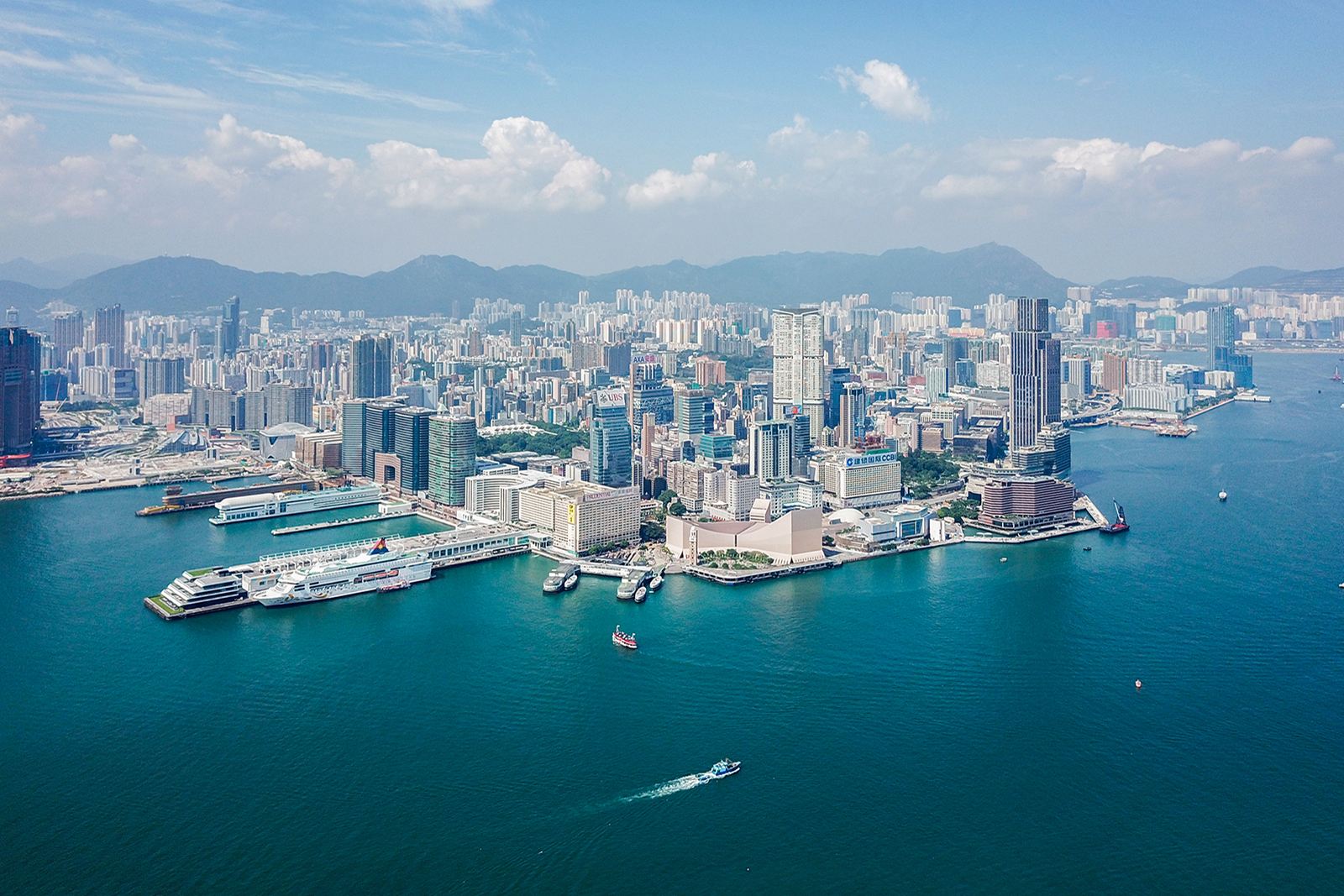|
Raphael Wong
Raphael Wong Ho-ming (; 24 October 1988), also known by his nickname "Village Head", is a Hong Kong social activist and politician. He is formerly the chairman of the League of Social Democrats (LSD) and was one of the leaders in the 2014 Hong Kong protests. Early life In 1988, Wong was born in Hong Kong. Wong's father is Wong Yu-choi, a pro-Beijing rural politician, a member of the Civil Force and holding the position of member of the Sha Tin Rural Committee and resident representative of the Ha Wo Che village in Sha Tin. Education Wong attended the Shatin Pui Ying College. Wong earned a bachelor's degree in social science from the Hong Kong Polytechnic University. Wong earned a master's degree in social policy from Chinese University of Hong Kong. Career Protests Wong became interested in politics in the 2008 Legislative Council election, when pro-democracy League of Social Democrats (LSD) chairman Wong Yuk-man chanted " DAB the most shameless" in an election foru ... [...More Info...] [...Related Items...] OR: [Wikipedia] [Google] [Baidu] |
League Of Social Democrats
The League of Social Democrats (LSD) is a social democratic party in Hong Kong. Chaired by Chan Po-ying, wife of Leung Kwok-hung, it positions itself as the radical wing of the pro-democracy camp (Hong Kong), pro-democracy camp and stresses on "street actions" and "parliamentary struggles". It currently holds two seats in the District councils of Hong Kong, District Councils. Established in 2006 by a group of pro-grassroots left-leaning activists, the party opposes the perceived moderate and compromising approach of its pro-democratic allies Democratic Party (Hong Kong), Democratic Party and Civic Party and called for more aggressive tactics to achieve democracy. It often found itself at odds with other pan-democrats due to its confrontational and radical activism in the Legislative Council of Hong Kong, Legislative Council. The party first participated in the 2008 Hong Kong legislative election, 2008 Legislative Council election and won over the 10 per cent of the popular vote ... [...More Info...] [...Related Items...] OR: [Wikipedia] [Google] [Baidu] |
Former Central Government Offices
The Former Central Government Offices (also the Government Headquarters), now called Justice Place, is an office building complex that formerly housed most of the major offices of the Hong Kong Government. The complex is located in Central, Hong Kong, occupying the lower level of Government Hill. The offices of the government have been relocated to the Main Block of the Central Government Complex, Tamar. History Completed in 1957 by the Government of Hong Kong, it replaced a two-storey colonial complex from the 1930s, the old Secretariat Building (built in 1847 and demolished in 1954). Like Hong Kong City Hall, the complex was built in the International style. Legislative Council The Legislative Council of Hong Kong met here until 1985, when it moved to the old Supreme Court Building. Government offices All major government departments except the Department of Justice are now located at the Central Government Complex in Tamar. The Department of Justice re ... [...More Info...] [...Related Items...] OR: [Wikipedia] [Google] [Baidu] |
Joshua Wong Chi-fung
Joshua Wong Chi-fung (; born 13 October 1996) is a Hong Kong activist and politician. He served as secretary-general of the pro-democracy party Demosistō until it disbanded following the implementation of the Hong Kong national security law on 30 June 2020. Wong was previously convenor and founder of the Hong Kong student activist group Scholarism. Wong first rose to international prominence during the 2014 Hong Kong protests, and his pivotal role in the Umbrella Movement resulted in his inclusion in TIME magazine's Most Influential Teens of 2014 and nomination for its 2014 Person of the Year; he was further called one of the "world's greatest leaders" by ''Fortune'' magazine in 2015, and nominated for the Nobel Peace Prize in 2017. In August 2017, Wong and two other democracy activists were convicted and jailed for their roles in the occupation of Civic Square at the incipient stage of the 2014 Occupy Central protests; in January 2018, Wong was convicted and jailed again ... [...More Info...] [...Related Items...] OR: [Wikipedia] [Google] [Baidu] |
Scholarism
Scholarism was a Hong Kong pro-democracyWilfred Chan and Yuli Yang, CNNbr>Echoing Tiananmen, 17-year-old Hong Kong student prepares for democracy battle 28 September 2014 student activist group active in the fields of Hong Kong's education policy, political reform and youth policy. It was reported to have 200 members in May 2015. The group was known for its stance on defending the autonomy of Hong Kong's education policy from Beijing's influence."(Joshua ) Wong formed a group of students in Hong Kong called Scholarism to stop the territory from implementing a mainland-designed "national education" policy that ignored the Tiananmen massacre and pushed fealty to the Chinese Communist Party." It was also the leading organisation during the 2014 Hong Kong protests, better known as the "Umbrella Revolution". Founded by a number of secondary school students on 29 May 2011, the group first came to media attention when they organised a protest against the Pro-Communist "moral and nat ... [...More Info...] [...Related Items...] OR: [Wikipedia] [Google] [Baidu] |
South China Morning Post
The ''South China Morning Post'' (''SCMP''), with its Sunday edition, the ''Sunday Morning Post'', is a Hong Kong-based English-language newspaper owned by Alibaba Group. Founded in 1903 by Tse Tsan-tai and Alfred Cunningham, it has remained Hong Kong's newspaper of record since British colonial rule. Editor-in-chief Tammy Tam succeeded Wang Xiangwei in 2016. The ''SCMP'' prints paper editions in Hong Kong and operates an online news website. The newspaper's circulation has been relatively stable for years—the average daily circulation stood at 100,000 in 2016. In a 2019 survey by the Chinese University of Hong Kong, the ''SCMP'' was regarded relatively as the most credible paid newspaper in Hong Kong. The ''SCMP'' was owned by Rupert Murdoch's News Corporation from 1986 until it was acquired by Malaysian real estate tycoon Robert Kuok in 1993. On 5 April 2016, Alibaba Group acquired the media properties of the SCMP Group, including the ''SCMP''. In January 2017, former D ... [...More Info...] [...Related Items...] OR: [Wikipedia] [Google] [Baidu] |
Li Wangyang
Li Wangyang (, 12 November 1950 – 6 June 2012) was a Chinese dissident labor rights activist, member of the Workers Autonomous Federation and chairman of the Shaoyang WAF branch. Following his role in the Tiananmen Square protests of 1989, he served twenty-one years in prison on charges of counterrevolutionary propaganda, incitement, and subversion. Of all Chinese pro-democracy activists from 1989, Li spent the longest time in prison. On 6 June 2012, one year after his release from prison, and a few days after a television interview in which he continued to call for vindication of the Tiananmen Square protests, Li was found hanged in a hospital room. Shaoyang city authorities initially claimed suicide was the cause of death, but it was revised to 'accidental death' after the autopsy. Following a protest march attended by up to 25,000 people, Pan Democrats and senior establishment figures in Hong Kong publicly commented on the suspicious nature of the death, and said they had e ... [...More Info...] [...Related Items...] OR: [Wikipedia] [Google] [Baidu] |
1989 Tiananmen Square Protests And Massacre
The Tiananmen Square protests, known in Chinese as the June Fourth Incident (), were student-led demonstrations held in Tiananmen Square, Beijing during 1989. In what is known as the Tiananmen Square Massacre, or in Chinese the June Fourth Clearing () or June Fourth Massacre (), troops armed with assault rifles and accompanied by tanks fired at the demonstrators and those trying to block the military's advance into Tiananmen Square. The protests started on 15 April and were forcibly suppressed on 4 June when the government declared martial law and sent the People's Liberation Army to occupy parts of central Beijing. Estimates of the death toll vary from several hundred to several thousand, with thousands more wounded. The popular national movement inspired by the Beijing protests is sometimes called the '89 Democracy Movement () or the Tiananmen Square Incident (). The protests were precipitated by the death of pro-reform Chinese Communist Party (CCP) general secretary H ... [...More Info...] [...Related Items...] OR: [Wikipedia] [Google] [Baidu] |
North Lantau Highway
North Lantau Highway is an expressway forming part of Hong Kong's Route 8, linking Hong Kong International Airport and Lantau Island with the rest of the territory. The road has three lanes in each direction for its entire length with full-width hard shoulders for emergencies and breakdowns. The speed limit is for most of its length, the highest of any road in Hong Kong. North Lantau Highway is in length, beginning at Airport Road on Chek Lap Kok. The road then crosses onto Lantau Island and bypasses Tung Chung New Town. The road then travels along the northern coast of Lantau Island, next to the Airport Express and Tung Chung line of the Mass Transit Railway (MTR). This section is built on reclaimed land and through various cuttings. Finally, the road climbs over Ta Shui Wan and Tsing Chau Wan to meet the Lantau Link and its bridges. History Background The North Lantau Highway was built as part of the Airport Core Programme in the 1990s. The ultimate aim of the new ... [...More Info...] [...Related Items...] OR: [Wikipedia] [Google] [Baidu] |
Hu Jintao
Hu Jintao (born 21 December 1942) is a Chinese politician who served as the 16–17th general secretary of the Chinese Communist Party (CCP) from 2002 to 2012, the 6th president of the People's Republic of China (PRC) from 2003 to 2013, and chairman of the Central Military Commission (CMC) from 2004 to 2012. He was a member of the CCP Politburo Standing Committee, China's ''de facto'' top decision-making body, from 1992 to 2012. Hu was the paramount leader of China from 2002 to 2012. Hu rose to power through the Chinese Communist Party (CCP), notably as Party Committee secretary for Guizhou province and the Tibet Autonomous Region, where his harsh repression of dissent gained him attention from the highest levels. He moved up to first secretary of the CCP Central Secretariat and vice president under CCP general secretary Jiang Zemin. Hu was the first leader of the Communist Party from a generation younger than those who participated in the civil war and the founding of ... [...More Info...] [...Related Items...] OR: [Wikipedia] [Google] [Baidu] |
PRC President
The president of the People's Republic of China, commonly called the president of China, is the head of state and the second-highest political office of the People's Republic of China. The presidency is constitutionally a largely ceremonial office with very limited power in China's political system. However, the post has been held by the General Secretary of the Chinese Communist Party and Chairman of the Central Military Commission since 1993, who is China's ''de facto'' leader. The presidency is officially regarded as an institution of the state rather than an administrative post. Under the constitution, the president serves at the pleasure of the National People's Congress (NPC), the highest organ of state power and the legislature, and is not legally vested to take executive action on his own prerogative. The office was first established in the Constitution in 1954, with the official English-language translation of " state chairman." It was successively held by Mao Zedong ... [...More Info...] [...Related Items...] OR: [Wikipedia] [Google] [Baidu] |
Tsim Sha Tsui
Tsim Sha Tsui, often abbreviated as TST, is an list of areas of Hong Kong, urban area in southern Kowloon, Hong Kong. The area is administratively part of the Yau Tsim Mong District. Tsim Sha Tsui East is a piece of land reclaimed from the Hung Hom Bay now east of Tsim Sha Tsui. The area is bounded north by Austin Road and in the east by Hong Chong Road and Cheong Wan Road. Geographically, Tsim Sha Tsui is a cape (geography), cape on the tip of the Kowloon Peninsula pointing towards Victoria Harbour, opposite Central, Hong Kong, Central. Several villages had been established in this location before Kowloon Convention of Peking, was ceded to the British Empire in 1860. The name ''Tsim Sha Tsui'' in Cantonese language, Cantonese means ''sharp spit (landform), sandspit''. It was also known as Heung Po Tau (), i.e. a port for exporting Aquilaria sinensis, incense tree. Tsim Sha Tsui is a Tourism in Hong Kong, major tourist hub in Hong Kong, with many high-end shops, bars, pubs an ... [...More Info...] [...Related Items...] OR: [Wikipedia] [Google] [Baidu] |
Hong Kong Museum Of History
The Hong Kong Museum of History is a museum that preserves Hong Kong's historical and cultural heritage. It is located next to the Hong Kong Science Museum, in Tsim Sha Tsui East, Kowloon, Hong Kong. The collections of the museum encompass natural history, archaeology, ethnography and local history. History The museum was established by the Urban Council in July 1975 when the City Museum and Art Gallery was split into the Hong Kong Museum of History and Hong Kong Museum of Art; some of the Museum of History's collections were on display at the City Museum and Art Gallery's original 1962 location at the City Hall. From 1975 to 1983, the Hong Kong Museum of History was housed in a 700 m2 rented space within Star House. In 1983, the Museum was moved to a temporary location (which now houses Hong Kong Heritage Discovery Centre) in Kowloon Park. It was moved to its present premises near Hong Kong Science Museum on Chatham Road South, Tsim Sha Tsui in 1998. It is currently man ... [...More Info...] [...Related Items...] OR: [Wikipedia] [Google] [Baidu] |



.jpg)


